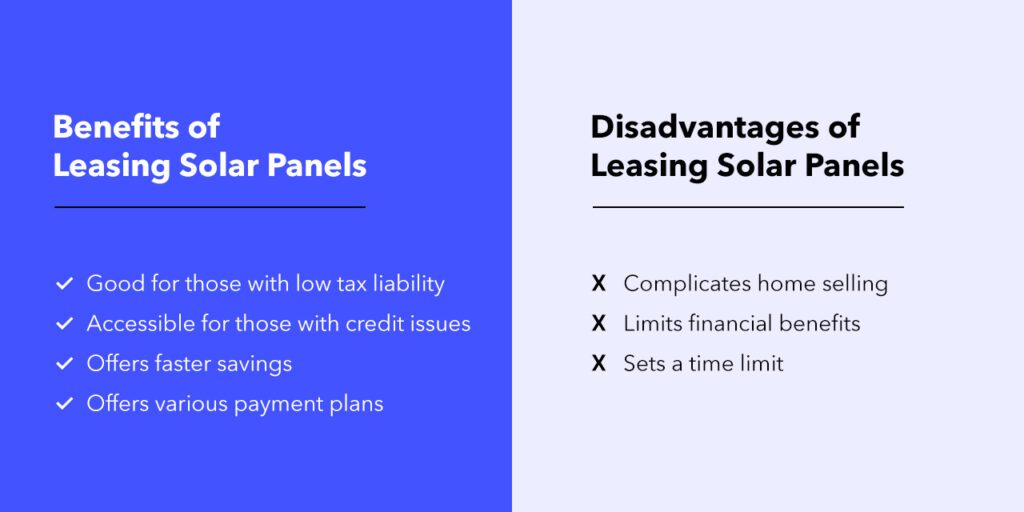Leasing Solar Panels vs Buying Solar Panels: What to Do in 2024?
In recent years, the buzz around solar energy has grown louder, with many people turning to this clean, renewable power source. The surge in demand for solar panels is a clear sign of a collective shift towards more environmentally friendly choices, aiming to shrink that carbon footprint. If you’re toying with the idea of soaking up some sun power for yourself, a pivotal question might be whether to lease solar panels from a trusted solar installer in Phoenix or to purchase the system outright. Let’s unpack the pros and cons of each route to ensure you’re well-equipped to make a savvy decision in 2024.
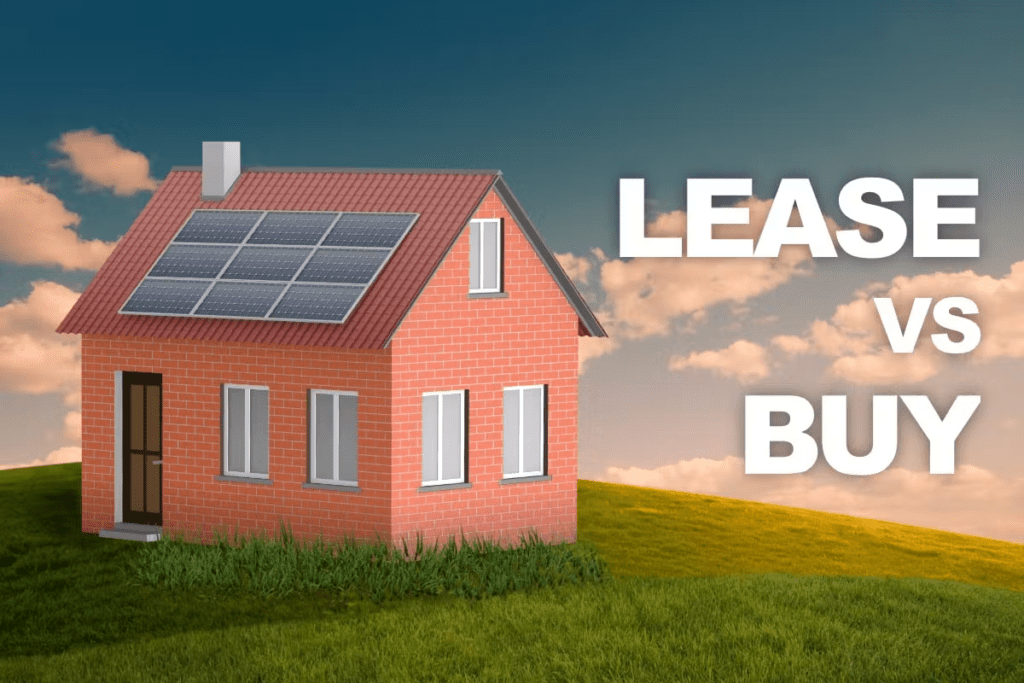
1. Leasing Solar Panels
Leasing solar panels involves entering into an agreement with a solar company, where you pay a fixed monthly fee for the use of the panels installed on your property. The panels remain owned by the solar leasing company, and they are responsible for maintenance and repairs.
1.1 Advantages of Leasing
Lower upfront costs: Leasing solar panels requires little to no upfront investment. This makes it an attractive option for homeowners who may not have the financial resources to purchase a solar system outright.
Maintenance and repairs: With leased solar panels, the leasing company takes care of maintenance and repairs, saving you from potential costs and headaches.
Immediate savings: By leasing solar panels, you can start saving on your electricity bills from day one. The fixed monthly lease payment is often lower than your current electricity expenses.
1.2 Disadvantages of Leasing
No ownership or long-term benefits: Since you don’t own the solar panels, you won’t benefit from any long-term savings or potential increase in property value. Additionally, you may not qualify for certain incentives or tax credits available to solar panel owners.
Contractual obligations: Leasing agreements typically come with long-term contracts, ranging from 15 to 25 years. If you decide to sell your house before the lease term ends, you may face challenges and restrictions.
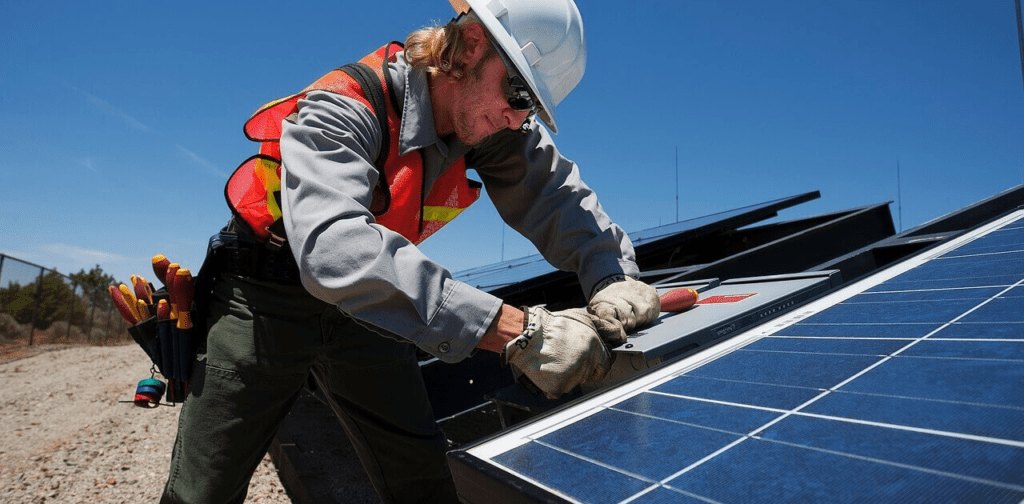
2. Buying Solar Panels
Buying solar panels involves making a direct purchase and owning the solar power system installed on your property. You are responsible for maintenance, repairs, and enjoying the long-term benefits of solar energy.
2.1 Advantages of Buying
Ownership and financial benefits: Buying solar panels allows you to own the system outright, providing you with long-term savings on your electricity bills and potential return on investment.
Increased property value: Installing solar panels can increase the value of your property, making it more attractive to potential buyers if you decide to sell your home in the future.
Eligibility for incentives and tax credits: Solar panel owners can take advantage of various incentives and solar tax credits, reducing the overall cost of the system and increasing savings.
2.2 Disadvantages of Buying
Higher upfront costs: Purchasing solar panels requires a significant upfront investment. While the long-term savings can offset this expense, it may not be feasible for everyone.
Maintenance and repairs: As the owner, you are responsible for the maintenance and repairs of the solar system. This includes the cost and effort associated with ensuring optimal performance.
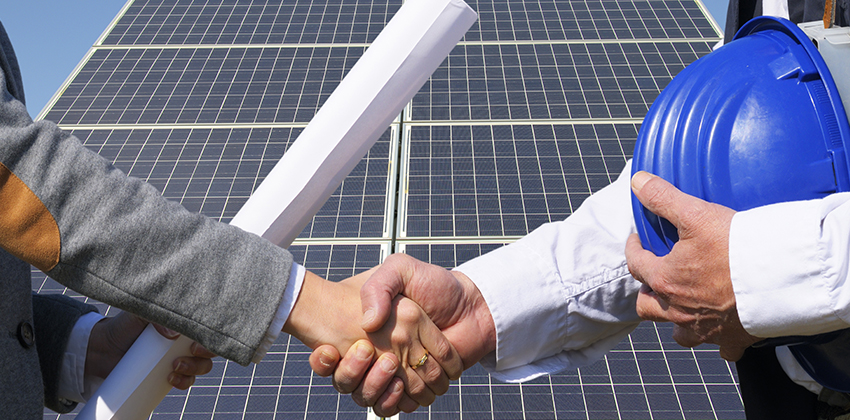
3. Factors to Consider
When deciding whether to lease or buy solar panels, it’s crucial to consider the following factors:
Financial Considerations: Assess your budget, cash flow, and financial goals to determine whether leasing or buying aligns better with your financial situation.
Long-Term Plans: Evaluate your long-term plans for the property. If you plan to stay for many years, buying may be a more beneficial option.
Maintenance and Repairs: Consider your willingness and ability to handle maintenance and repairs. Leasing may be more suitable if you prefer a hands-off approach.
Return on Investment: Analyze the potential return on investment for both options, factoring in energy savings, incentives, and the resale value of the property.
Flexibility and Control: Determine the level of control and flexibility you desire over your solar system. Buying provides more freedom in customization and decision-making.
4. The downside of leasing solar panels
4.1 Lack of Ownership and Long-Term Costs
One significant downside of leasing solar panels is the lack of ownership. When you lease solar panels, you do not own the system or the energy it produces. This means that you miss out on potential financial benefits in the long run, such as selling excess electricity back to the grid or taking advantage of government incentives and tax credits.
Additionally, the total cost of leasing solar panels over the long term can surpass the cost of purchasing them outright. Lease agreements typically last 15 to 20 years, and the cumulative lease payments can exceed the cost of buying a solar system.
4.2 Exploring Alternatives to Leasing
If the downsides of leasing solar panels outweigh the benefits, there are alternative options to consider. Financing options, such as solar loans or power purchase agreements (PPAs), can provide more flexibility and control while still enabling you to install a solar system without the full upfront cost.
4.3 Limited Control and Flexibility
Leasing solar panels often comes with limitations on system control and flexibility. As the panels are owned by the leasing company, you may have restrictions on modifying or upgrading the system according to your specific needs. For instance, you might not be able to add more panels or change the system configuration without the lessor’s approval.
Moreover, if you decide to move to a new location during the lease term, transferring the lease to the new property can be challenging. You may face additional costs, delays, or even termination of the lease if the new property is not suitable for solar panel installation.
4.4 Restrictions and Contractual Obligations
When entering into a solar panel lease agreement, it is crucial to carefully review the terms and conditions. Lease agreements often contain various restrictions and contractual obligations that can limit your options. For example, you might be required to maintain a specific level of insurance coverage, obtain lessor’s permission for roof repairs, or adhere to specific maintenance schedules.
4.5 Maintenance and Repairs
While leasing solar panels may alleviate some maintenance responsibilities, it does not absolve you entirely from maintenance and repair costs. Depending on the lease agreement, you may still be responsible for certain repairs or maintenance tasks. It is important to clarify these responsibilities before signing a lease to avoid unexpected expenses down the line.
4.6 Potential Impact on Property Value
Although solar panels are generally considered a valuable addition to a property, leasing them can have mixed implications for property value. Some potential homebuyers or investors may perceive a leased solar panel system as an encumbrance due to the associated lease payments and transferability concerns. This perception could affect the resale value or marketability of the property.
4.7 Transferability and Resale Challenges
Transferring a solar panel lease to a new property can be a complex process. It often involves negotiations between the lessor, the new property owner, and the utility company. If the new property owner is not interested in assuming the lease, you might be responsible for terminating the lease early, which can result in penalties or fees.
4.8 Inefficiency of Leased Solar Panels
Solar technology is constantly evolving, with new advancements aimed at increasing the efficiency and performance of solar panels. However, when you lease solar panels, you may be stuck with older or less efficient technology throughout the lease term. This limitation could impact the overall energy production and financial benefits you can gain from the system.
4.9 Reliance on Third-Party Service Providers
When you lease solar panels, you rely on the leasing company for maintenance, repairs, and system monitoring. While this can provide convenience, it also means that you are dependent on the responsiveness and reliability of the service provider. In case of delays or unsatisfactory service, it may negatively impact your solar energy experience.
4.10 Environmental Considerations
While solar energy is considered environmentally friendly, leasing solar panels may have certain environmental implications. The manufacturing, transportation, and installation processes of leasing solar panels vs all contribute to carbon emissions and environmental impacts. Moreover, the disposal of leased panels after the lease term ends should be handled responsibly to minimize environmental harm.
4.11 Government Incentives and Tax Benefits
One of the downsides of leasing solar panels is the potential loss of government incentives and the federal solar tax credit and benefits. These incentives are often available to homeowners who own the solar panels outright. When you lease, the leasing company usually retains these financial benefits. Therefore, it is essential to consider the long-term financial implications of forfeiting such incentives.
4.12 Comparison with Solar Panel Purchase
To better understand the downsides of leasing solar panels, it is important to compare them with the alternative of purchasing solar panels. Buying solar panels upfront gives you complete ownership, the ability to benefit from government incentives, and the potential for higher financial returns over time
4.13 Evaluating Financial Considerations
When evaluating the financial aspects of leasing solar panels, it is crucial to consider the total cost of the lease payments over the term compared to the cost of purchasing solar panels. Additionally, assessing the potential energy savings, government incentives, and tax benefits can help determine the overall financial feasibility of leasing solar installer versus buying.
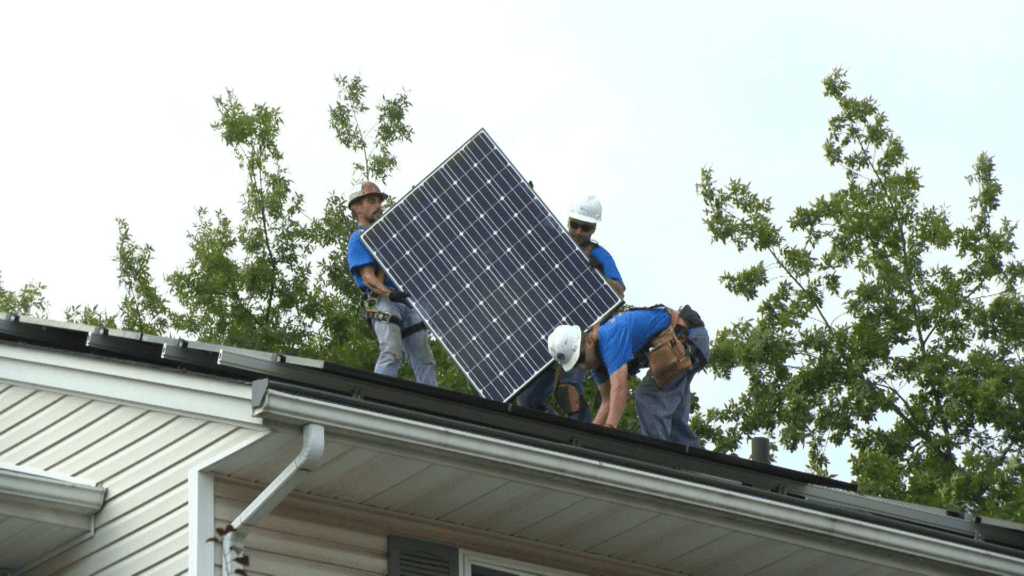
5. Buying Solar Systems
5.1 The Upfront Investment
When buying a solar system, you make an upfront investment to purchase and install the panels and associated equipment. The cost depends on the system size, quality, and installation requirements. However, owning the system outright means you can benefit from long-term financial advantages.
5.2 Long-Term Cost Savings
While the initial investment may seem significant, buying a solar system can lead to substantial long-term savings on electricity costs. As you generate your electricity, you can offset or even eliminate your monthly utility bills. Over time, the savings can outweigh the initial purchase costs, providing a solid return on investment.
5.3 Ownership and Maintenance
By owning the home solar system, you have complete control over its operation and maintenance. You can choose the equipment, monitor its performance, and ensure proper upkeep. It also gives you the flexibility to upgrade or expand the system as needed.
5.4 Return on Investment (ROI)
Buying a solar system offers a tangible return on investment. Depending on various factors such as system efficiency, local electricity rates, and available incentives, the payback period can range from several years to a decade. Beyond the payback period, you can enjoy free electricity and potentially even earn money by selling excess power back to the grid.
6. Financing Solar Systems
6.1 No Upfront Costs
Financing options allow you to install a solar system without making a large upfront payment. This can be beneficial if you don’t have the necessary capital or prefer to save money and allocate your funds elsewhere. Instead, you make monthly payments over a fixed term.
6.2 Monthly Payments
Solar financing typically involves a loan or lease arrangement. With a solar loan, you borrow money to purchase the system and repay it over time, similar to a mortgage. A solar lease, on the other hand, allows you to use the solar system while paying a fixed monthly amount to the leasing company.
6.3 Tax Benefits and Incentives
Financing a solar system may qualify you for tax benefits and incentives. These can include federal or state tax credits, rebates, or grants. It’s important to research and understand the available solar incentives in your area to maximize your savings.
6.4 Evaluating Financing Options
Before committing to a financing option, it’s crucial to evaluate different offers from reputable providers. Compare interest rates, loan terms, and potential fees associated with each option. Ensure that the financing terms align with your financial goals and enable you to achieve long-term cost savings.
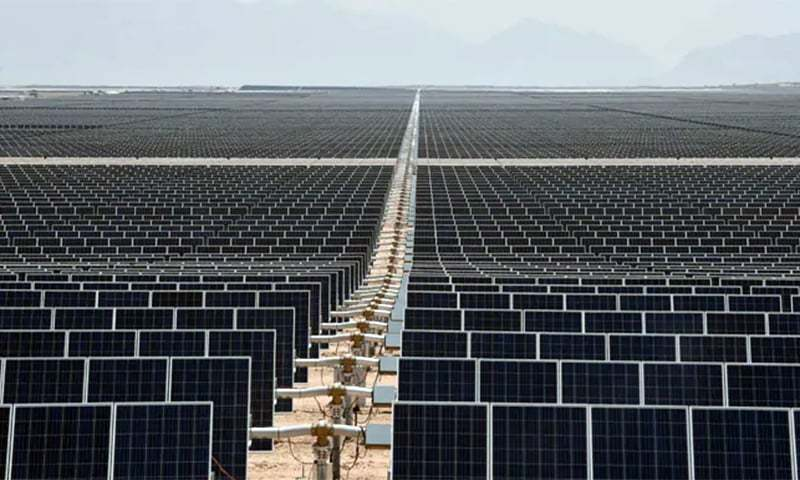
7. End-of-Lease Options
As the end of a solar lease term approaches, lessees typically have several options to consider. These options include lease extension, solar panel purchase, or lease termination. The specific choices available may vary based on the terms of the lease agreement and the policies of the solar provider.
7.1 Lease Extension
One possible course of action is to extend the solar lease. In this scenario, the lessee continues to pay the monthly lease payments to the provider, allowing them to retain access to the solar energy generated by the panels. Lease extensions for solar leases can vary in duration, ranging from a few years to an additional full term.
7.2 Solar Panel Purchase
Another option at the end of a solar lease is to a power purchase agreement for the solar panel system. Many solar lease agreements include a purchase option, enabling the lessee to buy the panels at a predetermined price. By exercising this option, the lessee becomes the owner of the solar panel system and can enjoy the benefits of free electricity generation.
7.3 Lease Termination
If neither a lease extension nor a solar panel purchase is desired, the lessee can opt for lease termination. This option involves removing the solar panels from the property, ending the lease agreement. However, it’s important to consider the implications and potential costs associated with lease termination.
8. Feature Cost of Solar Energy
8.1 The Current Cost of Solar Energy
Solar energy has come a long way in terms of affordability. Over the past decade, the cost of solar panels has significantly decreased, making solar energy more accessible to homeowners and businesses. However, the initial installation cost purchase solar panels can still be a barrier for some individuals.
8.2 Technological Advancements in Solar Energy
Advancements in solar technology have played a crucial role in driving down costs. Innovations such as thin-film solar cells, concentrated solar power, and more efficient photovoltaic cells have significantly increased the efficiency of solar panels. These technological advancements have the potential to further reduce the cost of solar energy in the future.
8.3 Research and Development
Ongoing research and development efforts in the field of solar energy are focused on improving efficiency and reducing costs. Scientists and engineers are constantly exploring new materials and manufacturing techniques to make solar panels more affordable and durable. The investment in R&D is likely to lead to further cost reductions in solar energy systems in the future.
8.4 Government Policies and Incentives
Government policies and incentives play a crucial role in promoting the adoption of solar energy. Many countries have implemented favorable policies such as tax credits, grants, and feed-in tariffs to encourage the installation of solar panels. As governments continue to prioritize renewable energy, these incentives can contribute to driving down the cost of solar power.
8.5 Economies of Scale
As the demand for solar energy increases, economies of scale come into play. Solar panel manufacturers can benefit from producing panels in larger quantities, leading to lower production costs. The increasing installation of solar panels worldwide is driving economies of scale, making solar energy more cost-effective.
Conclusion
In conclusion, the decision to lease or buy solar panels depends on your unique circumstances and preferences. Leasing offers lower upfront costs and hassle-free maintenance while buying provides ownership, long-term financial benefits, and increased property value. Consider your financial situation, long-term plans, and desire for control and ownership when making your choice. Ultimately, both options contribute to a greener future by harnessing the power of the sun.
FAQs - Leasing vs Buying Solar Panels: What to Do in 2024?
Can I lease solar panels for my business?
Yes, many solar companies offer leasing monthly payment options for both residential and commercial properties.
Are there any tax incentives for buying solar panels?
Yes, depending on your location, you may be eligible for federal or state solar tax credit incentives, such as solar investment tax credits.
What happens if I want to sell my house with leased solar panels?
Selling a house with leased solar panels can be more complicated. You will need to transfer the lease and solar contract to the new homeowner or potentially buy out the lease agreement.
Are there any hidden costs associated with leasing solar panels?
While solar leasing companies for solar panels may have lower upfront costs, it’s essential to review the lease agreement carefully for any potential hidden costs, such as maintenance fees or early termination fees.
How long do solar panels typically last?
Solar panels are built to be durable and can last for 25 to 30 years or even longer with proper maintenance and care.
Contents
- 1 Leasing Solar Panels vs Buying Solar Panels: What to Do in 2024?
- 2 1. Leasing Solar Panels
- 3 2. Buying Solar Panels
- 4 3. Factors to Consider
- 5 4. The downside of leasing solar panels
- 5.1 4.1 Lack of Ownership and Long-Term Costs
- 5.2 4.2 Exploring Alternatives to Leasing
- 5.3 4.3 Limited Control and Flexibility
- 5.4 4.4 Restrictions and Contractual Obligations
- 5.5 4.5 Maintenance and Repairs
- 5.6 4.6 Potential Impact on Property Value
- 5.7 4.7 Transferability and Resale Challenges
- 5.8 4.8 Inefficiency of Leased Solar Panels
- 5.9 4.9 Reliance on Third-Party Service Providers
- 5.10 4.10 Environmental Considerations
- 5.11 4.11 Government Incentives and Tax Benefits
- 5.12 4.12 Comparison with Solar Panel Purchase
- 5.13 4.13 Evaluating Financial Considerations
- 6 5. Buying Solar Systems
- 7 6. Financing Solar Systems
- 8 7. End-of-Lease Options
- 9 8. Feature Cost of Solar Energy
- 10 Conclusion
- 11 FAQs - Leasing vs Buying Solar Panels: What to Do in 2024?

